Ask our dispensing optician
Your request was successfully submitted!
What Does 20/20 Vision Mean?

Reviewed by
Beck Jinnette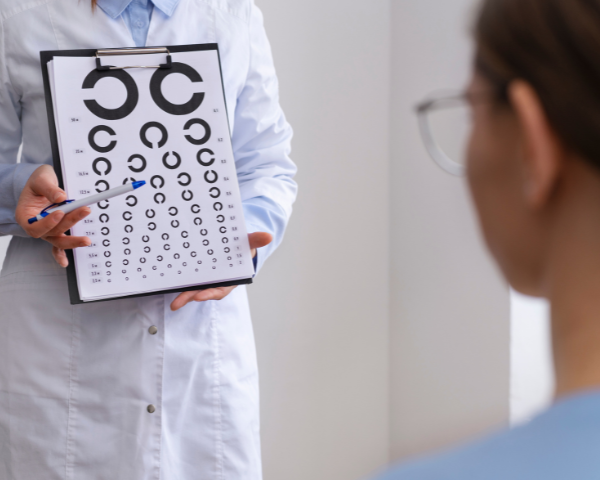
Have you ever heard this term and wondered “what does 20/20 vision mean?” This article provides the explanation you’ve been looking for.
20/20 vision means that you can see an object clearly 20 feet (6m) away. It is a term used to indicate visual acuity (how clearly you can see).
For example, if you have 20/30 vision, that means that you can see at 30 feet (9m) what an average person with normal vision can see at 20 feet. In short, 20/20 vision is normal visual acuity.
Keep in mind that 20/20 vision is a term used mainly in the United States. In other countries, eye care professionals may say 6/6 vision instead, as the measurements are in meters and not feet.
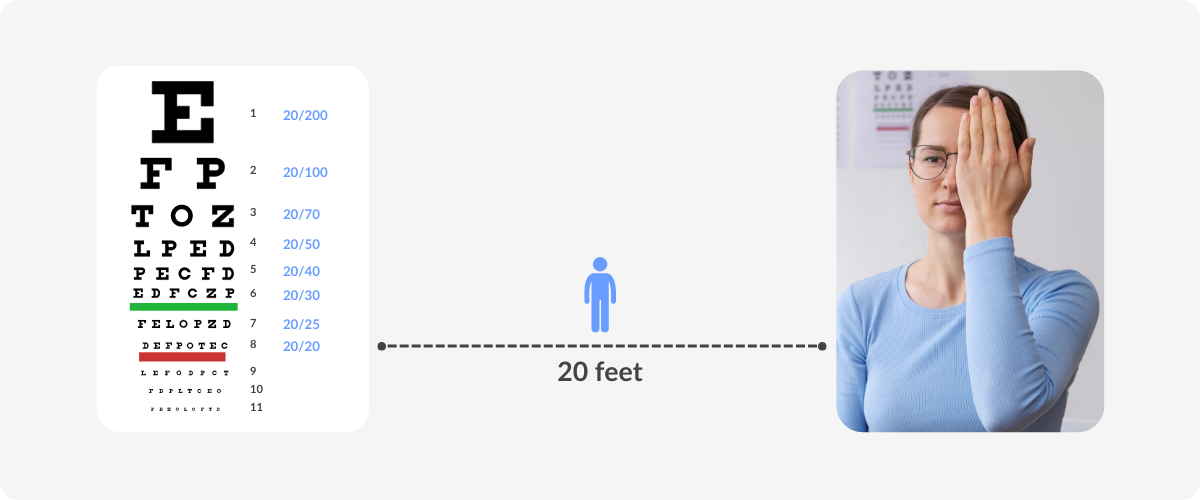
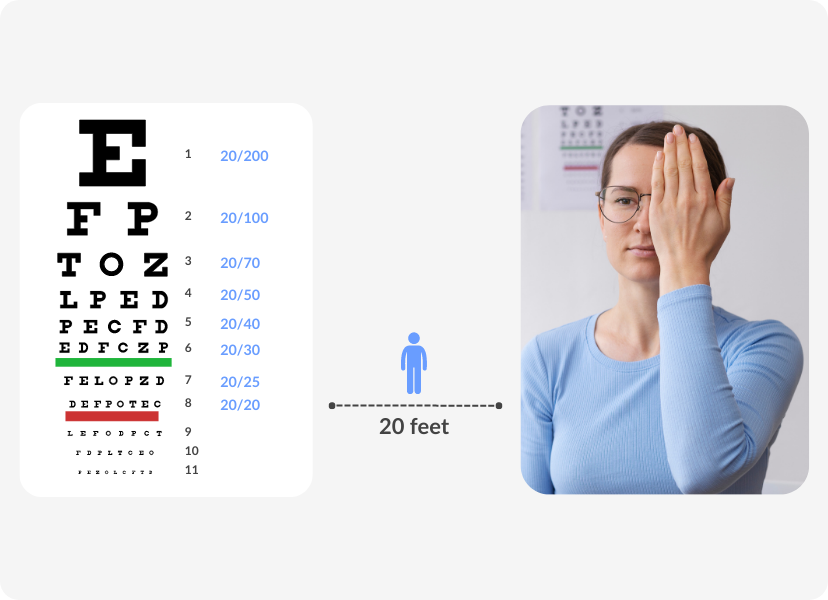
Visual acuity
Visual acuity refers to the clarity or sharpness of vision. To measure visual acuity, eye doctors use a standard Snellen chart during an eye exam. The Snellen chart consists of several rows of letters, with the letters in each row decreasing in size from top to bottom.
During a visual acuity test, an individual is typically positioned at a distance of 20 feet (6 meters) from the eye chart. The person is asked to cover one eye while reading the letters on the chart aloud, starting from the top row and moving down until they can no longer accurately identify the letters. The test is then repeated with the other eye.
The results of the test are recorded as a fraction, with the numerator (first part of the fraction) representing the distance at which the test was conducted (usually 20 feet or 6 meters) and the denominator (second part of the fraction) representing the distance at which a person with normal visual acuity can read the line correctly.
Does having 20/20 vision mean you have perfect vision?
Having 20/20 vision does not necessarily mean that a person has perfect vision, although it is often considered to be within the normal range of visual acuity.
Visual acuity is just one aspect of overall visual function. Other factors contribute to the quality of vision, such as depth perception, color vision, peripheral vision and the ability to focus and track objects smoothly.
Additionally, visual acuity alone does not provide information about the health of the eyes or any underlying eye conditions.
To assess overall vision, eye care professionals conduct comprehensive eye examinations that evaluate various aspects of visual function, eye health and potential eye conditions.
So, while 20/20 vision is generally considered to be good, it does not guarantee perfect vision or exclude the possibility of other vision-related issues.
DID YOU KNOW?
The fact that you might have 20/20 vision is a good thing, but does not imply that your vision is perfect. Many other factors need to be taken into consideration when assessing your eyesight.
What causes you to have less than 20/20 vision?
Refractive errors and some eye conditions might cause an individual to have less than 20/20 vision and therefore the need for vision correction. These include:
- Myopia
- Hyperopia
- Astigmatism
- Presbyopia
- Eye diseases
- Eye injuries or trauma
Additionally, systemic health conditions, medications or genetic factors may also play a role in vision impairment. It’s important to note that the specific cause of reduced visual acuity can vary from person to person.
If you are experiencing a decrease in visual acuity or have concerns about your vision, it is recommended to consult with an eye care professional who can perform a comprehensive eye examination and provide a proper diagnosis.
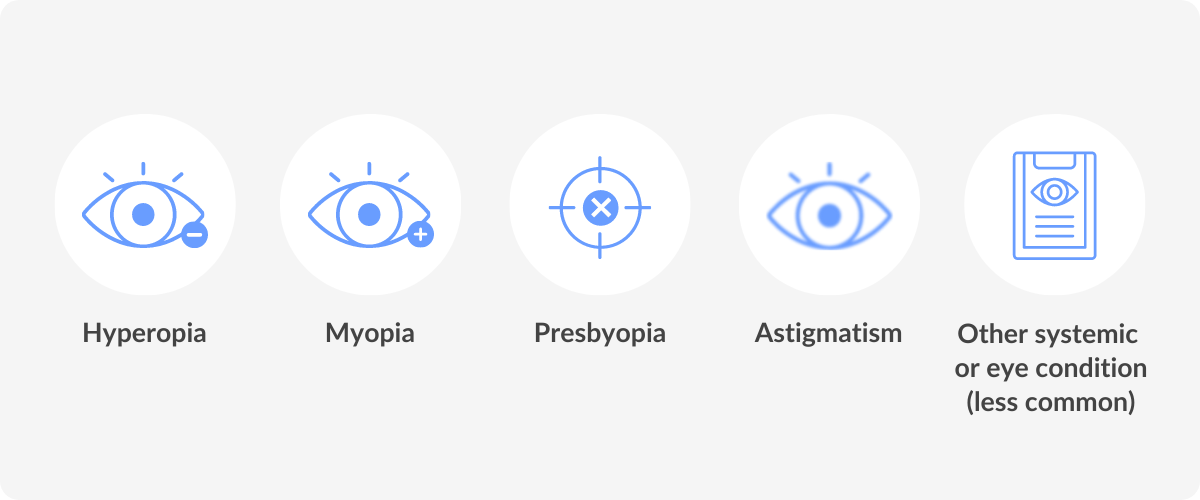
If you have 20/20 vision, do you need glasses?
If you have 20/20 vision, it generally means that you have normal visual acuity and can see at 20 feet (6m) what a person with normal vision can see at 20 feet (6m). In most cases, individuals with 20/20 vision do not require glasses for clear-distance vision.
However, it’s important to note that visual acuity is just one aspect of overall visual function. Even for people with 20/20 vision, glasses, contact lenses or prescription sunglasses may still be required to correct vision for other visual needs.
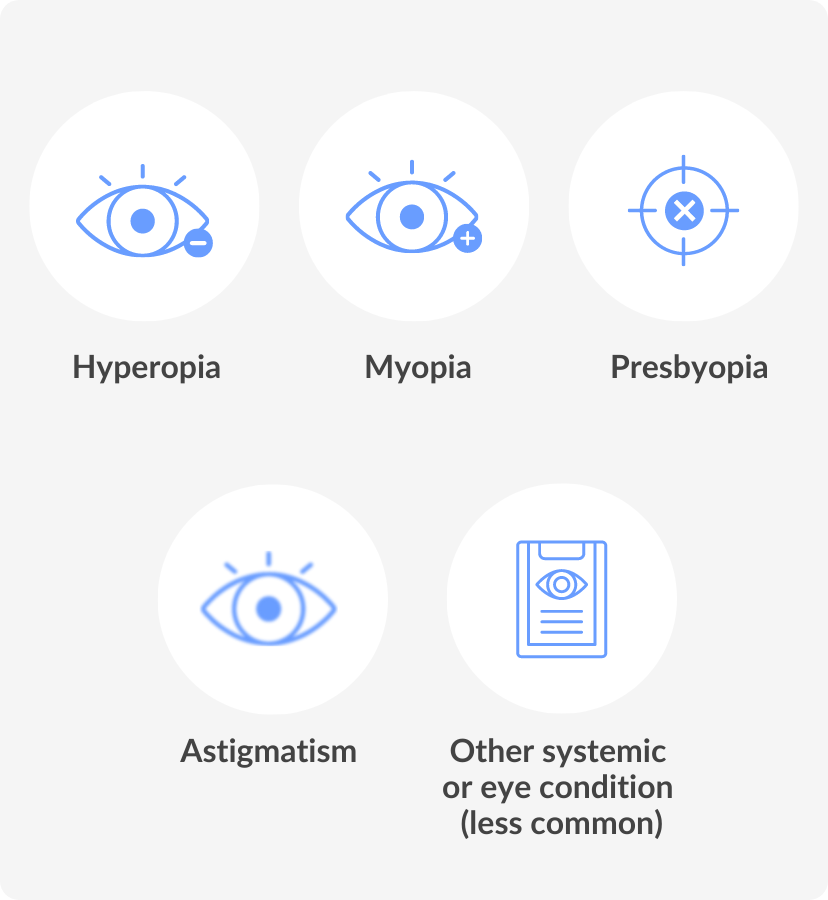
When should I go for a vision test?
Eye exams are important for your overall health and well-being, just like any other regular check-up. By taking care of your eyes, you’ll make sure to detect any need for vision correction or identify issues and get the right treatment for them.
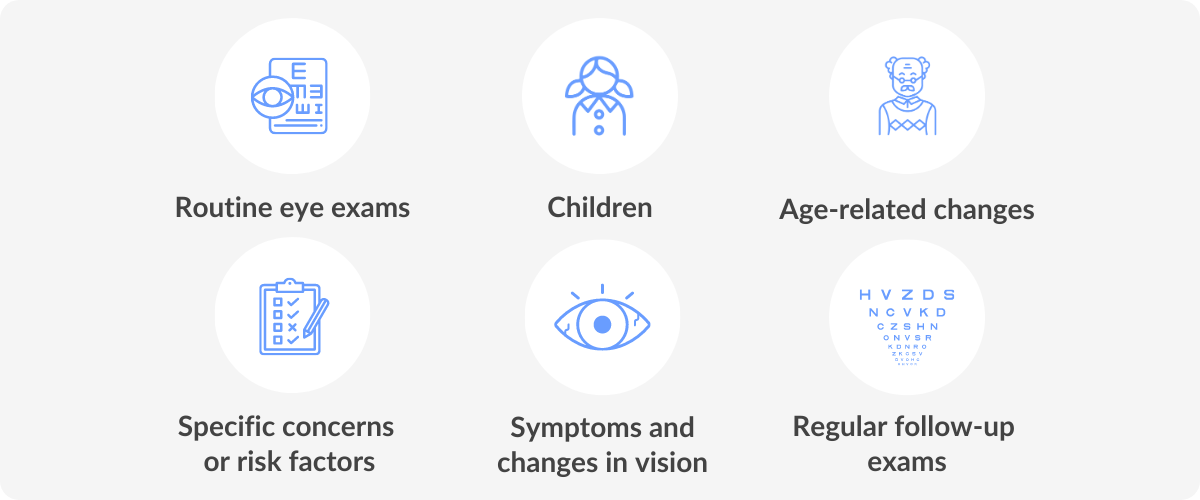
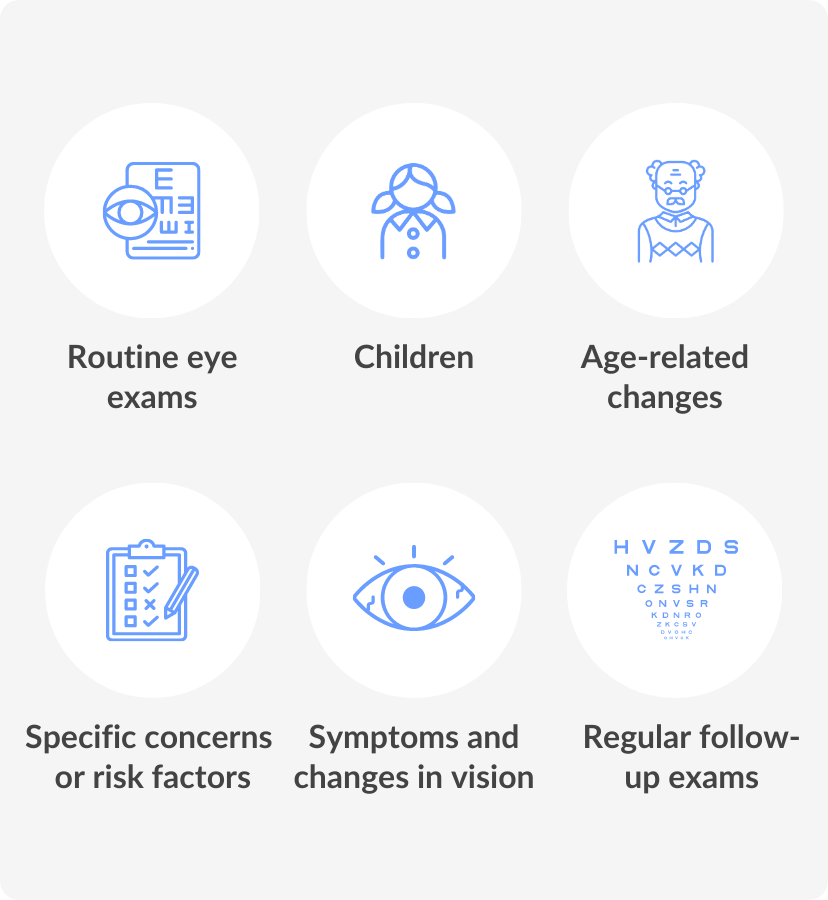
Routine eye exams: It is generally recommended for adults with no known eye conditions or risk factors to have a comprehensive eye exam every 1-2 years.
Children: Children should have their first comprehensive eye exam at around 6 months of age, followed by additional exams at age 3, before starting school, then once a year from age 5-13, and every two years from then on. Regular eye exams in childhood are crucial for identifying and addressing vision problems that can affect learning and development. vision.
Specific concerns or risk factors: If you have specific concerns about your vision or have risk factors for eye conditions, it is recommended to have a vision test.
Regular follow-up exams: If you have already been diagnosed with an eye condition, wear corrective lenses or have undergone eye surgery, follow the recommended schedule of regular check-ups and follow-up exams as advised by your eye care professional.
Age-related changes: As you age, your risk of developing age-related eye conditions such as presbyopia, cataracts, glaucoma and age-related macular degeneration increases. Regular eye exams become particularly important for individuals over the age of 40 to monitor and manage any changes in vision or eye health.
Remember that these are general guidelines and individual circumstances may vary. It’s always best to consult with an eye care professional who can assess your specific needs and provide personalised recommendations on when to go for a vision test based on your age, health and risk factors.





































